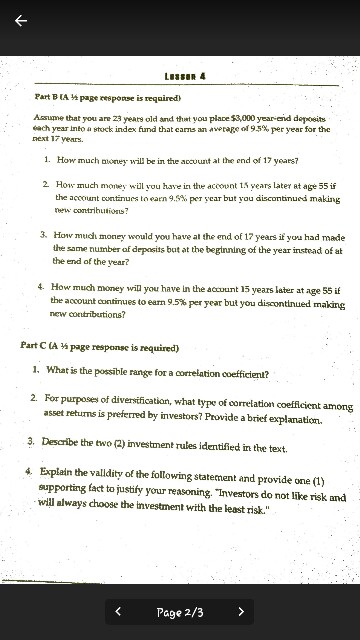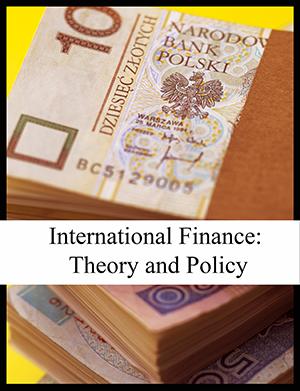Answered step by step
Verified Expert Solution
Question
1 Approved Answer
Assume that you are 23 years old and that you place $3,000 year-end deposits each year into a stock index fund that earns an average

Assume that you are 23 years old and that you place $3,000 year-end deposits each year into a stock index fund that earns an average of 9.5 % per year for the next 17 years. 1. How much money will be in the account at the end of 17 years? 2. How much money will you have in the account years later at age 55 if the account continues to earn 9.5% per year but you discontinued making new contributions? 3. How much money would you have at the end of 17 years if you had made the same number of deposits but at the beginning of the year instead of at the end of the year? 4. How much money will you have in the account 15 years later at age 55 if the account continues to earn 9.5% per year but you discontinued making new contributions? What is the possible range for a correlation coefficient? For purposes of diversification, what type of correlation coefficient among asset returns is preferred by investors? Provide a brief explanation. Describe the two (2) investment rules identified in the text. Explain the validity of the following statement and provide one (1) supporting fact to justify your reasoning. "Investors do not like risk and will always choose the investment with the least risk
Step by Step Solution
There are 3 Steps involved in it
Step: 1

Get Instant Access to Expert-Tailored Solutions
See step-by-step solutions with expert insights and AI powered tools for academic success
Step: 2

Step: 3

Ace Your Homework with AI
Get the answers you need in no time with our AI-driven, step-by-step assistance
Get Started


